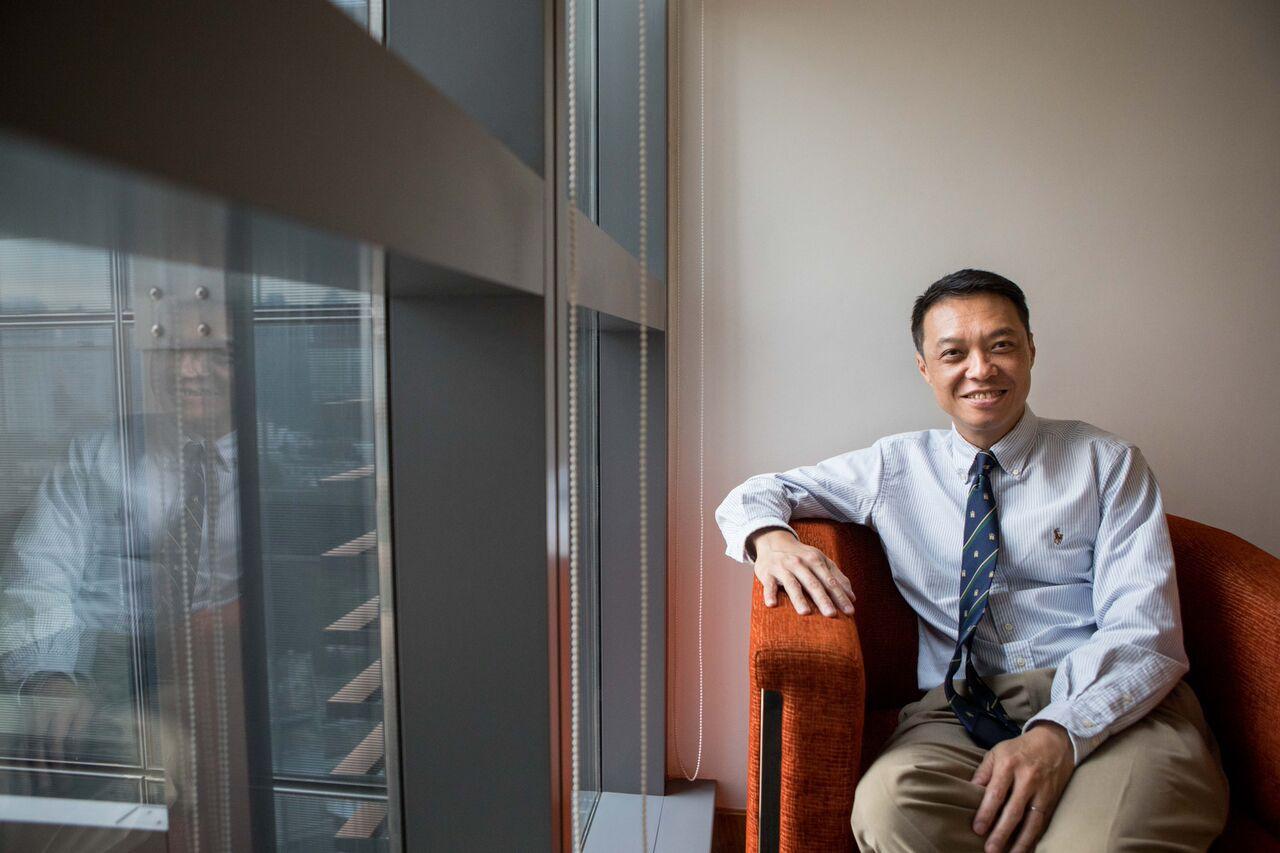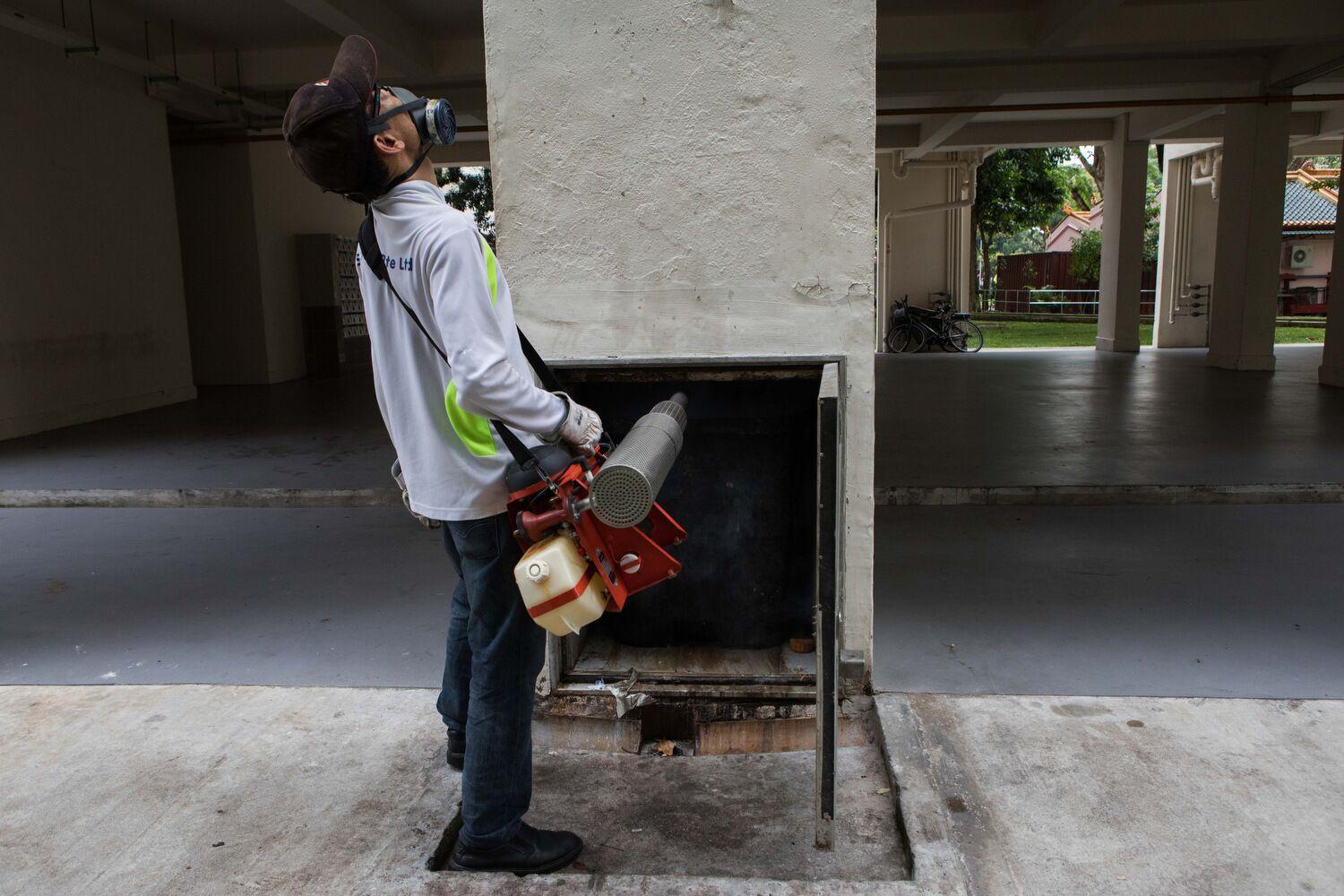How Singapore became a role model in the fight against Zika
Fumigation of housing complex trash chutes in the Aljunied Crescent area, previously the largest Zika cluster in Singapore with nearly 300 Zika cases reported.
When Singapore became the first country in Southeast Asia to report local transmission of the Zika virus this past August, it’s fair to say the region, and the world at large, was surprised.
While it may not be a shock to learn that someone within the hot and humid environs of Southeast Asia had contracted Zika, Singapore was a surprising place for it to crop up.
After all, the tiny island nation has an established reputation for being clean, rich and organized (as well as autocratic). Compared to the region, it's quite low on mosquitos.
Thanks to a hugely successful program to control mosquito populations, first launched in the 1960s, densities of the insect in Singapore are but a fraction of those in neighboring countries.
Professor Eng Ong Ooi, the deputy director of the Emerging Infectious Diseases Program at Singapore’s prestigious National University, says the success of control measures is clear from dengue’s tiny prevalence on the island.
He says only 20 percent of the population under age 20 has had a dengue fever infection. In other nearby cities, the prevalence is much higher.
“If you go to Bangkok, if you go to any other Southeast Asian cities, then that number is probably nearer 80, 90 percent,” Ooi says.
Yet paradoxically, Ooi also thinks the small population of mosquitos in Singapore can exacerbate the potential for outbreaks. “Any introduction of a virus, when it hits the small populations of mosquitos the chance of getting an outbreak is actually much higher than anywhere else.”
Combining this with the city-state’s longstanding role as a hub of international trade and finance, Ooi thinks the potential for a Zika outbreak was more pronounced than many accepted.
Singapore’s first cluster was in a small, residential area demarcated by the roads Aljunied Crescent and Sims Drive. Within a month, 298 separate infections were identified in the area.
Outside a small salon at the center of the hot zone, a woman who asked to be identified as Lee has been meeting up to chat with her friends almost every day for years. She says that while she was aware of the outbreak from newspapers and TV, the reality of a Zika outbreak really hit home when she watched patients flow into the clinic across the street.
“So many patients sick,” Lee says, as she begins to scratch herself and mimic feverish shivers. “Here the doctors know so many people, itchy … with fevers.”
Yet despite the potential for an ever-worsening situation, not even two months later, the neighborhood cluster was cleared.
Ooi explains that much of the mosquito control for Zika followed Singapore’s longstanding policies for dengue. On the streets, fogging and fumigation increased markedly. Flyers and public service announcements reiterated calls to remove potential sources of standing water, under penalty of fines. Volunteers made the rounds to ensure nobody could declare ignorance of the problem.
Chiang Heng Liang, Citizen’s Consultative Committee chairman for the region, spoke of going door to door and providing explanatory leaflets on Zika in four languages, as well as passing out free mosquito repellent.
“[In ] any country … the citizens all have to be ready for an emergency or crisis,” Liang says. “You all have to be ready to spring into action. In order to get that going, you have to be a bit more organized.”
After a short pause, he adds the caveat, “but I don’t think there are that many countries that are as organized as Singapore.”
With just over 5 million residents on a single island, it's easier for Singapore to reach everyone than it is for a country like Brazil, which has a sprawling population of 200 million.
But the swift and successful response of the Singaporean government and grassroots organizations earned the country praise from the highest echelons of public health. The World Health Organization almost immediately called Singapore a “role model” for its handling of Zika.

Yet for Ooi, learning from Singapore involves far more than a “copy and paste” of its mosquito control and public health policies.
“I think Singapore is under no illusion that what is done by us can be done by most other countries with dengue or Zika,” he explains, highlighting the small population, hefty legal structures, and a “centralized” government.
“I think the kind of information that is still useful is ‘What works?’ You might have to tweak it, but the strategy is the one to go after.”
For example: “What is clear is that if you go after the larvae and the immature stages of the mosquito that seems to work quite consistently wherever you go.”
He adds that what “needs to go hand-in-hand with this government-based, top-down control is community engagement. … If you don’t change habits then … this cycle goes on and on.”
America Abroad is an award-winning documentary radio program that takes an in-depth look at one critical issue in international affairs and US foreign policy every month. You can follow them on Facebook, talk to them on Twitter, and subscribe to their weekly newsletter for updates.
Every day, reporters and producers at The World are hard at work bringing you human-centered news from across the globe. But we can’t do it without you. We need your support to ensure we can continue this work for another year.
Make a gift today, and you’ll help us unlock a matching gift of $67,000!
